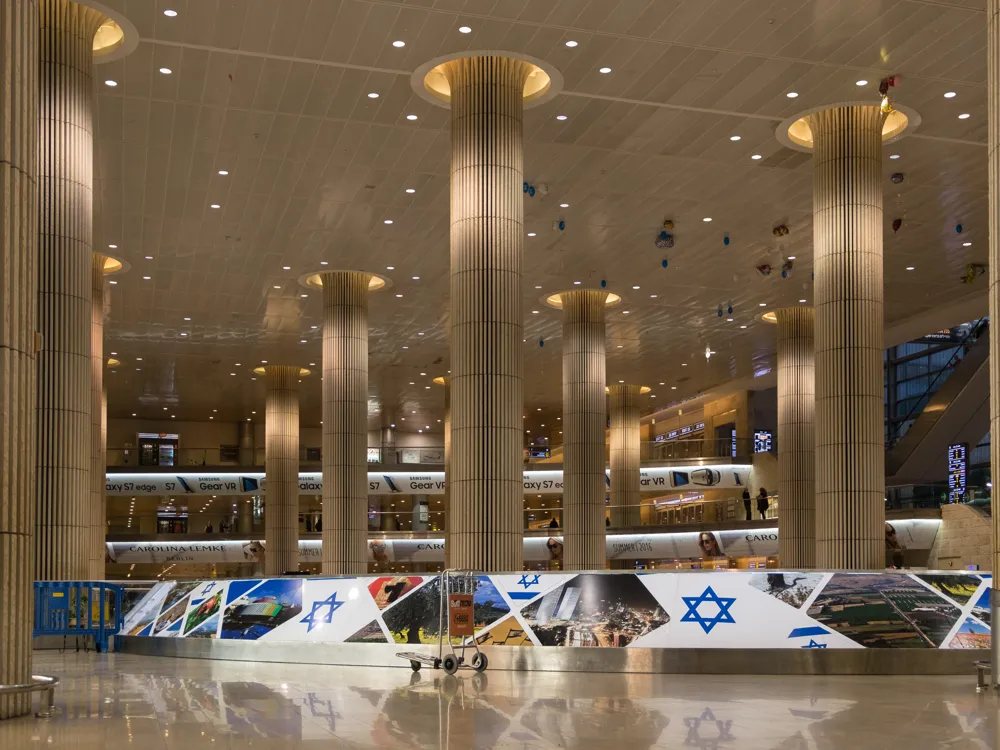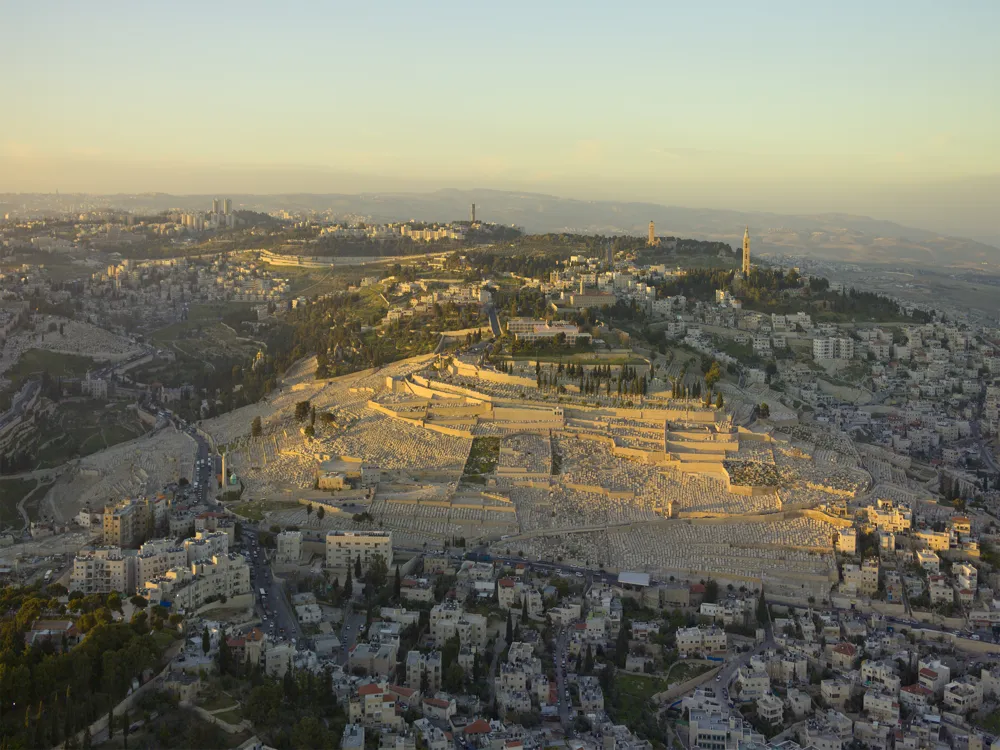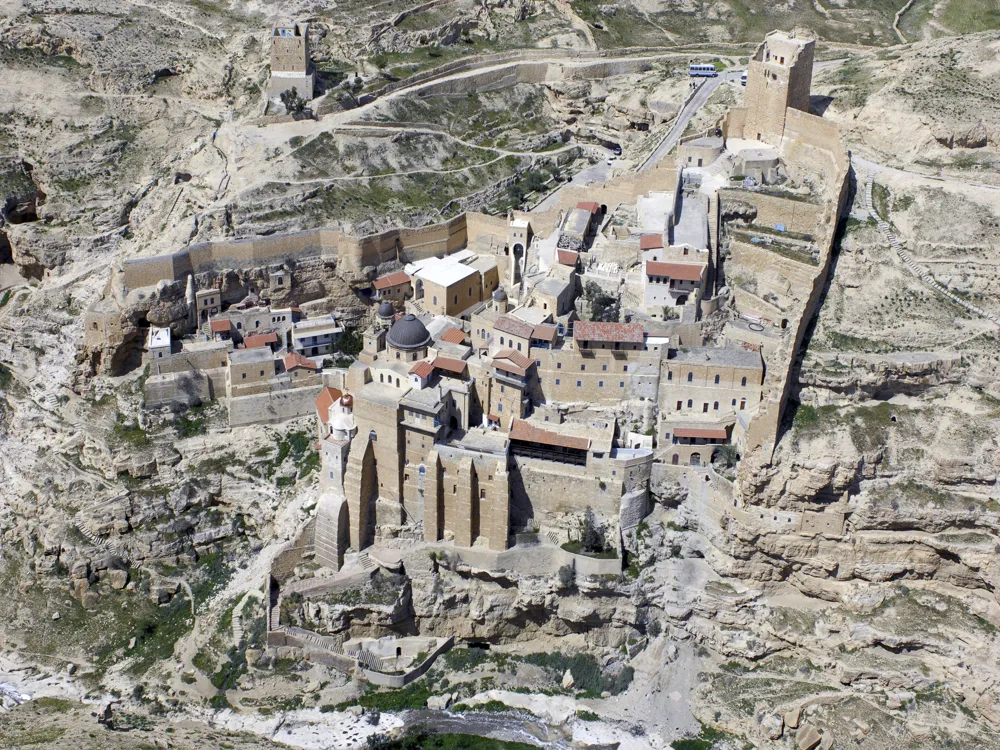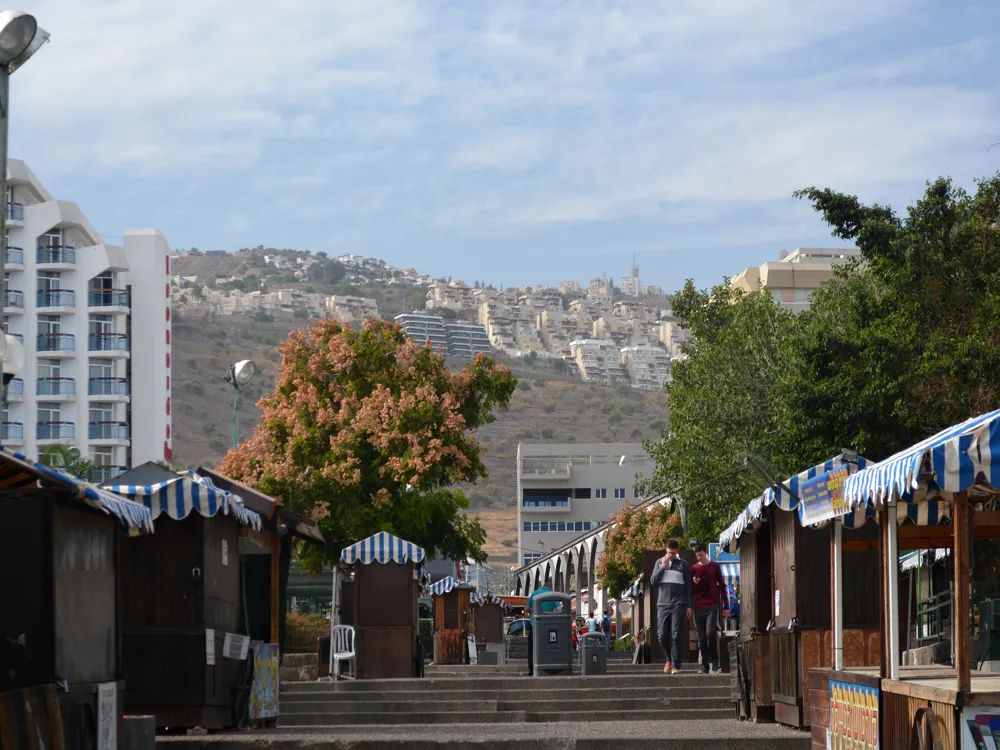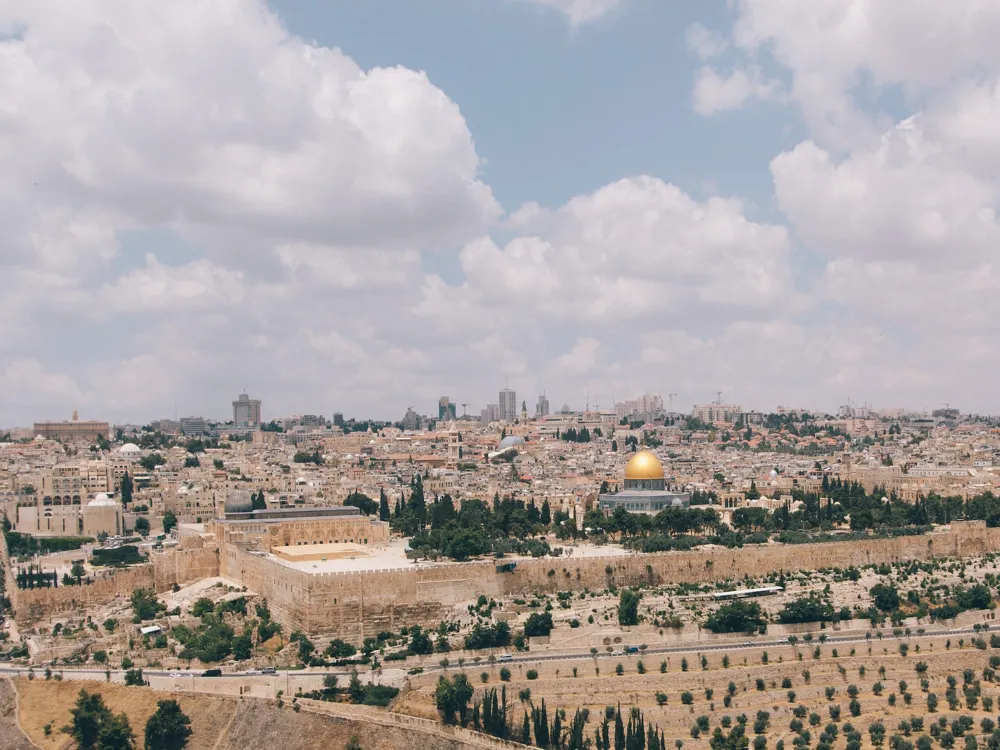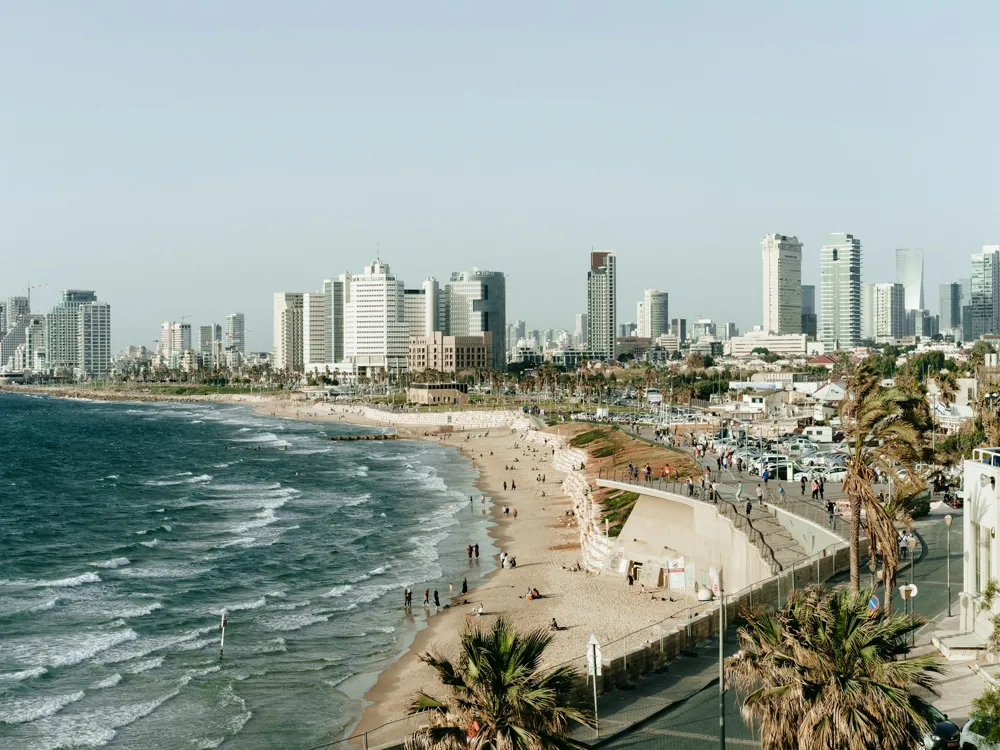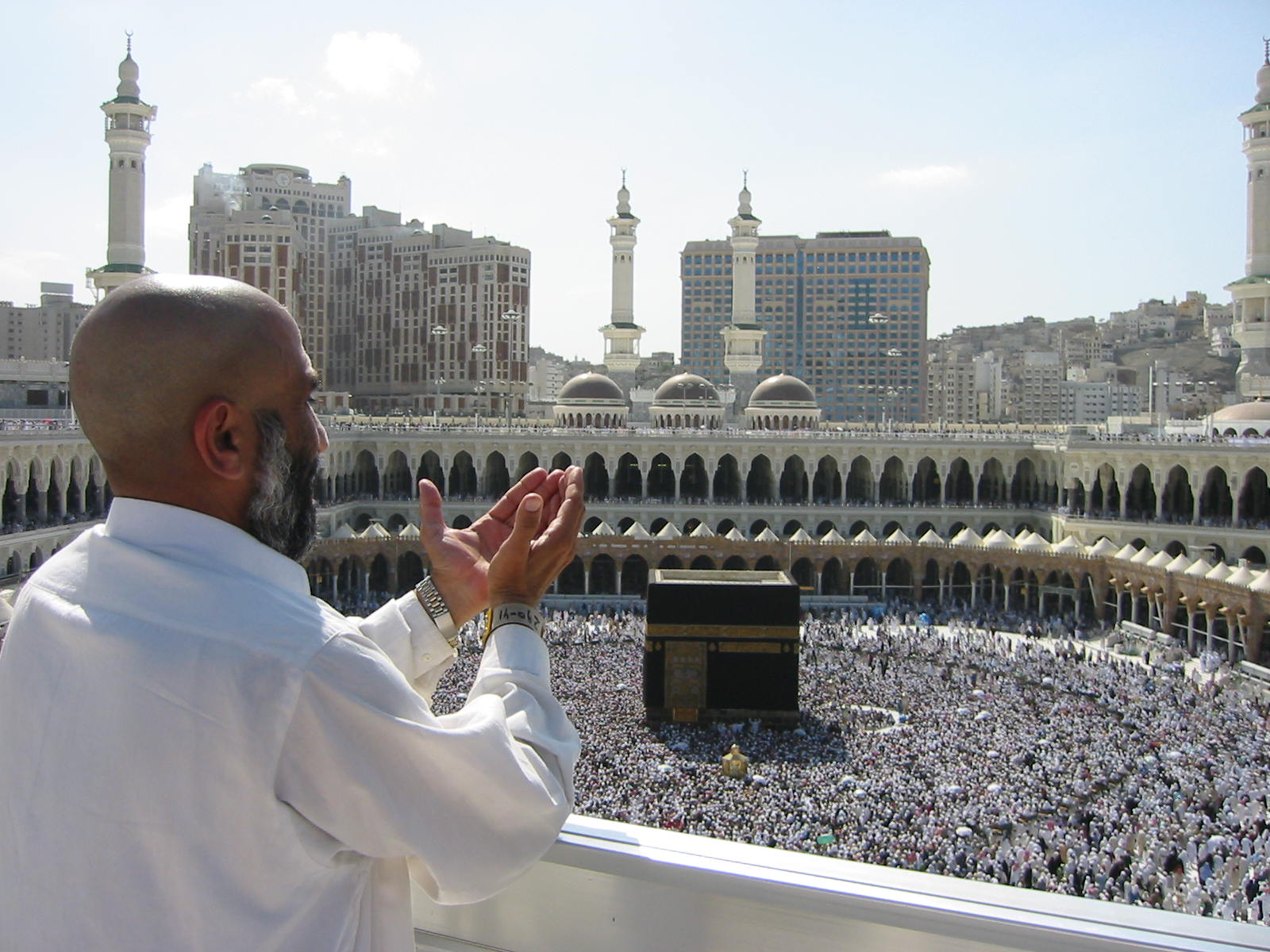What is the best time to visit Israel?
Israel, a land rich in history and culture, offers a diverse range of experiences throughout the year. Choosing the best time to visit is crucial for an unforgettable trip. Let's delve into the details to help you plan your visit efficiently.Spring or autumn are the ideal seasons to visit Israel because of the nice, 79°F daytime temperatures and the cold evenings.
With average highs of 90°F, June through August may be rather hot throughout the day. But if you don't mind the heat, the nights are cooler, and popular places will have fewer tourists.Wintertime temperatures are significantly lower, hovering around 50°F, and Jerusalem occasionally experiences snowfall.Although there's never a bad time to visit the Holy Land, the best time of year to schedule your trip will depend on your own interests. Seasonal changes in the weather, events, and holidays impact the atmosphere of the nation and the nature of your trip.It will be an unforgettable experience, regardless of the season. But knowing when the best time is to visit Israel can help you choose when it is most convenient for you! Naturally, when you come, you'll probably want to come back and experience each season here!
More about the Best Time to Travel to Israel
Exploring Israel involves considering the peaks and offseasons, each offering a unique flavour to your journey.November and December bring cooler winter weather again, with a chance of snow and definitely rain in Jerusalem.Hanukkah, the eight-day festival of lights marked by the lighting of menorahs and copious amounts of greasy food, is one of the most famous Jewish festivals. Every year, a relay race takes place in Israel when participants carry torches from the Judean highlands to light the menorah near the Western Wall.
Despite the fact that Islam and Judaism are the two most popular religions in Israel, a large number of local and foreign Christians celebrate Christmas in the Holy Land, particularly in places like Bethlehem and Nazareth.
Travel Peak Season in Israel
The peak season, from March to June, attracts travellers with pleasant weather and various festivals. Spring unfolds with vibrant landscapes, making it ideal for outdoor activities.
-
Spring (March to May):
- Reasons: Spring is considered one of the peak tourist seasons in Israel. During this time, the weather is usually mild and pleasant, making it ideal for outdoor activities and sightseeing. Many tourists visit popular destinations such as Jerusalem, Tel Aviv, and the Dead Sea during the spring months. Additionally, the Easter season, including Holy Week, attracts pilgrims and visitors from around the world.
-
Autumn (September to October):
- Reasons: Similar to spring, the autumn months of September and October are also considered peak tourist seasons in Israel. The weather is typically warm, and tourists can enjoy exploring historical sites, religious landmarks, and natural attractions. The Jewish High Holy Days, including Rosh Hashanah and Yom Kippur, may attract visitors, especially to Jerusalem.
-
Christmas and New Year (late December to early January):
- Reasons: The Christmas and New Year holiday season is another peak travel period in Israel. Many tourists, including pilgrims, visit Bethlehem and Jerusalem to celebrate Christmas and participate in festive events. The period around New Year's Eve can also be busy, with visitors enjoying the unique atmosphere and celebrations.
Travel Offseason in Israel
The offseason, spanning July to October, provides a quieter atmosphere and potential cost savings. While temperatures rise, strategic planning can turn this period into a rewarding experience.
-
Winter (December to February):
- Reasons: Winter, from December to February, is considered the offseason in Israel. During this time, temperatures can be cooler, and there may be some rainfall. While some tourists may choose to avoid the winter months, others appreciate the milder weather and the opportunity to explore historical and cultural sites with fewer crowds.
-
Shoulder Seasons (Late Autumn and Early Spring):
- Reasons: Late autumn (November) and early spring (March to April) are considered shoulder seasons. During these months, the weather is often mild, and there may be fewer tourists compared to the peak seasons of spring and autumn. Travellers can still enjoy pleasant temperatures and explore popular destinations without the intensity of the summer heat.
-
Midweek Travel:
- Reasons: Travelling on weekdays, especially outside of major holidays, can often provide a quieter experience. Many tourists visit Israel on weekends, and weekdays may offer a more relaxed atmosphere in cities and tourist spots.
Israel Weather in Winter (November – February)
Understanding Israel's winter weather, from November to February, is crucial for a comfortable visit.
Israel Weather in November
November brings mild temperatures, making it an excellent time for sightseeing. The landscapes are still lush from the fall, creating a picturesque backdrop.
Israel Weather in December
December introduces cooler temperatures, especially in the evenings. Festive decorations and holiday events add a delightful touch to your visit.
Israel Weather in January
January experiences winter's peak, with some regions potentially receiving rainfall. It's a great time to explore historical sites without crowds.
Israel Weather in February
February marks the transition to spring, offering pleasant weather. It's a fantastic time for a balanced experience, combining indoor and outdoor activities.
Israel Weather in Summers (March to June)
Summer in Israel, from March to June, has its own charm and challenges.
Israel Weather in March
March introduces warmer temperatures, making it ideal for coastal activities. The country starts to bloom, creating a colourful atmosphere.
Israel Weather in April
April brings warmer days, perfect for exploring outdoor attractions. It's an opportune time for hiking and enjoying nature.
Israel Weather in May
May marks the prelude to summer, with pleasantly warm temperatures. It's an ideal time for beach lovers and those seeking a sun-soaked holiday.
Israel Weather in June
June signifies the beginning of summer, with temperatures rising. Coastal areas become popular, offering a perfect setting for relaxation.
Israel Weather in Monsoon (July – October)
Understanding Israel's monsoon season, from July to October, is essential for planning your itinerary.
Israel Weather in July
July kicks off the monsoon season, bringing occasional rain showers. While temperatures rise, it offers a unique perspective on the landscape.
Israel Weather in August
August continues the monsoon, with intermittent rain and warm temperatures. It's a time for a different experience, exploring the country's natural beauty.
Israel Weather in September
September marks the transition from monsoon to autumn. The weather begins to cool, providing a comfortable environment for various activities.
Israel Weather in October
October concludes the monsoon season, with cooler temperatures emerging. It's an excellent time for diverse experiences, from cultural events to outdoor adventures.
Conclusion
Understanding the seasonal nuances of Israel is key to planning a memorable visit. Whether you prefer the lively atmosphere of peak seasons or the tranquilly of the offseason, Israel has something to offer year-round.
Is Israel suitable for travel throughout the year?
Israel offers diverse experiences year-round, allowing visitors to tailor their trips based on personal preferences.
Are outdoor activities limited during the monsoon season?
While occasional rain may affect outdoor plans, it also brings out the beauty of Israel's landscapes. Plan accordingly to make the most of your visit.
Can I expect crowds during the peak season?
Yes, the peak season attracts more visitors, especially during festivals. Plan and book accommodations in advance for a smoother experience.
Is it advisable to visit in winter?
Winter provides a comfortable climate for exploration, with fewer crowds. Just pack accordingly for cooler temperatures.
Are there any major festivals during the summer?
Yes, various festivals and events take place during the summer, offering a vibrant cultural experience.

